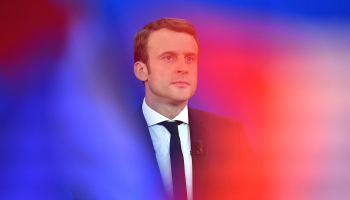Macron’s Risky Strategy Failed: France’s Political Future Turning Right

All Global Research articles can be read in 51 languages by activating the Translate Website button below the author’s name (only available in desktop version).
To receive Global Research’s Daily Newsletter (selected articles), click here.
Click the share button above to email/forward this article to your friends and colleagues. Follow us on Instagram and Twitter and subscribe to our Telegram Channel. Feel free to repost and share widely Global Research articles.
Give Truth a Chance. Secure Your Access to Unchained News, Donate to Global Research.
***
French President Emmanuel Macron thought he could defeat the far-right parties in his country by bringing forward early parliamentary elections, but it did not turn out the way he expected, and now, the political force led by Marine Le Pen, could end up in a ruling coalition, according to the renowned French sociologist Didier Fassin.
Almost from the beginning of his first presidential term, Macron —who claimed to be neither right nor left in the campaign—began to shift his policies to the right, attacking the left, but he ended up boosting the popularity of Marine LePen’s National Rally (Rassemblement National) party.
“The question is how Macron, who ran for president in 2017 as ‘neither right nor left’, and assured voters that he would ‘change the software’ of the country, has failed to the point of giving it the keys to power,” comments Fassin, a professor at the Collège de France, in an article published in the British newspaper The Guardian. “By tactically shifting towards the right and lambasting the left, he may have simply legitimised the party’s ideas.”
According to the analyst,
“Macron thought he could defeat Le Pen by shifting right. Instead, he has emboldened her. The president’s hazardous strategy has failed. Now France stands on the brink of its first far-right government since 1945.”
During his first term, the French president made unpopular decisions, earning him the nickname “president of the rich.” These included abolishing wealth taxes, introducing a flat tax on capital income, lowering the tax rate for corporations, restricting access to unemployment benefits, raising the minimum retirement age, and cutting housing benefits for the poor.
But this shift by Macron to the right, the specialist explained, far from harming the far right, has strengthened it, and proof of this was its recent success in the European elections at the beginning of June, in which Marine Le Pen’s party obtained 31.4% of the votes, more than double the 14.6% of Macron’s party.
Furthermore, Macron’s failed strategy has also managed to strengthen the most radical left, as the socialists, communists, greens and France Unbound have formed a New Popular Front, which, according to a recent poll, could obtain 28% of the votes in the next legislative elections, behind the 36% of the National Rally.
Fassin concludes,
“Macron’s gamble may lead to an unexpected outcome – whether a victory for the left or an ungovernable alliance with the right. Shortly after dissolving parliament, the president joked casually about his decision: ‘I’m delighted. I threw my unpinned grenade in their legs. Now we’ll see how they’re doing.’ His cynical gesture could end up hurting him more than his opponents.”
One of the critical issues in the election is Macron’s unrelenting support for the Kiev regime, especially his efforts to send French and European troops to Ukraine. In February, the French president stated at a press conference after the Paris Conference on Ukraine that the leaders of Western countries discussed the possibility of sending ground troops to Kiev. However, it was not possible to reach a consensus.
This was then followed by Macron, in an interview with The Economist magazine in March, not ruling out sending troops to Ukraine if he received a request from Kiev and if Russia breaks the front line. Moscow, in turn, warned that all French soldiers in Ukraine, both instructors and mercenaries, would be legitimate targets for the Russian Armed Forces.
Macron’s claims earned him criticism from prominent opponents, such as Marine Le Pen, who stated that the president “is playing the warlord, but it is about the lives of our children that he speaks so carelessly.”
More recently, Jordan Bardella, leader of the National Rally party, represented by Marine Le Pen in the Lower House of the French Parliament, declared earlier this month that he is against sending the military to Ukraine.
“There are red lines that the President of the Republic has crossed, but that I will not cross tomorrow as Prime Minister of a ‘government of coexistence.’ I, unlike the President, am against sending French troops and soldiers to Ukraine,” Bardella commented in a speech broadcast on the BFMTV television channel on June 19, adding that most French people also reject Macron’s decision.
“That can have tragic consequences, and I do not want France to be directly involved in a conflict with a nuclear power, which would represent a risk to world peace and the stability of our country,” he said.
Bardella focuses on wanting to fix France’s myriads of issues, from a cost-of-living crisis for ordinary French to dealing with mass migration and radical Islam in the country. These are issues that have been hurting the French but neglected by Macron as he attempts, and fails, to forge himself as a 21st-century Napoleon and creates the conditions for the National Rally party to gain power.
*
Note to readers: Please click the share button above. Follow us on Instagram and Twitter and subscribe to our Telegram Channel. Feel free to repost and share widely Global Research articles.
This article was originally published on InfoBrics.
Ahmed Adel is a Cairo-based geopolitics and political economy researcher. He is a regular contributor to Global Research.

